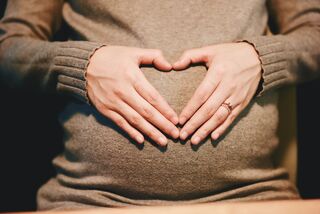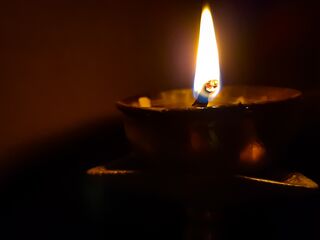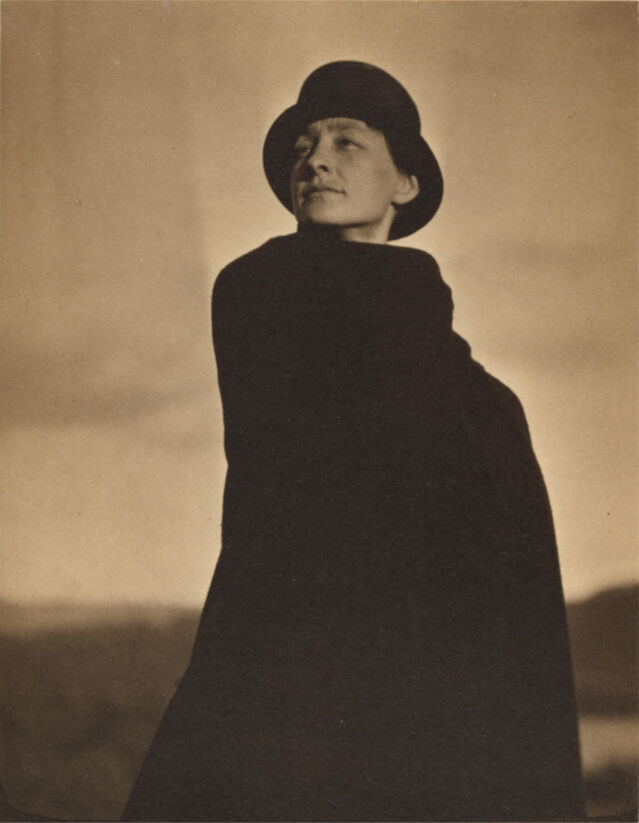Career
Navigating the Choice to Be Childfree
Pay your ambivalence around motherhood the respect it deserves.
Updated August 14, 2023 Reviewed by Gary Drevitch
The choice to forego motherhood is still a relatively rare one. Approximately 15% of women in the United States do not have children by age 50. This statistic includes both women who want children but can’t have them and women who’ve made the choice not to become mothers, making the percentage of women who are “childfree by choice” significantly lower than 15%. This post is about navigating that choice.

Like fish in water, we're immersed in an ideological system that assumes procreation to be a duty and teaches that womanhood = motherhood. Our culture steers women, from day one of their lives, toward motherhood. Despite all the gains women have made, they still face enormous pressure and expectations to become mothers. A childfree woman is often viewed as “unnatural” or “selfish,” and it is typically assumed that something went wrong over the course of her life that caused her to turn her back on her reproductive destiny. Many childfree women feel stigmatized, misunderstood, and alone. Some women choose to have children not out of desire but out of fear—fear of missing out, fear of social isolation, fear of stigma, fear of being alone in old age, etc. We need to pay more attention to this problem.
A subtle discernment process
As a psychologist in private practice, I see many women who are clear about their desire to have children. They feel called to be mothers and feel little to no conflict around the choice. I also see women, though far fewer in number, who are clear and unconflicted around their desire not to have children. A third group constitutes a significant portion of my clientele, however—women of childbearing age who are deeply ambivalent about having children. Though it might not be the primary reason they entered therapy, it is a question they usually end up wrestling with. Our job as therapist and client is to take this question seriously and pay it the respect it deserves.
The question of whether to have children requires, for many women, a subtle discernment process that takes work. The work is to listen closely to your own psyche and to disentangle your desire from that of other people and the larger society: What’s yours, and what’s theirs? The work is also to become as conscious of your fears as possible—fears around becoming a mother (e.g., fears of being a bad parent, feeling overwhelmed, losing your independence) as well as fears around choosing not to be a mother (e.g., fears of future regret, being alone in old age). Becoming honest about our fears is liberating. Letting the monsters out of the closet and taking a good look at them loosens their grip on us and allows us to move forward with greater clarity.
Another part of the discernment process is to examine whether difficult parts of your personal history (e.g., abandonment or neglect during your childhood) may be causing you to defend against your desire to have children. Examining your defenses around motherhood can help put them in their place and permit your desire to call the shots.

The work is to give all your competing inner “voices” their due. The work is to sit with the ambivalence and the tension of not knowing, until something becomes clearer. The work is not to hope that time runs out so you don’t have to make a decision, nor is it to make a hasty decision just to “get it over with already.” The work is to be patient and to listen.
Dealing with judgment: theirs and yours
If you choose not to have children, you may be judged harshly for it. To be perfectly blunt: Your job is to get over it. Your internal judgment is the only one that truly matters.
If you do find yourself bedeviled by the judgments of others, you might ask yourself whether you on some level harbor the same view. We often project our disowned views (those that don’t sit comfortably within us) onto others—imagining that they think a certain way about us, when that’s really how we feel. Or perhaps others do hold that view of us, but the reason it troubles us so much is because on some level we do as well. Are you judging yourself? The good news about projection is that we have some control over our own self-judgments. But it requires honesty and courage to examine and dismantle our projections. It’s difficult work, but well worth it.

The need for a crucible
Motherhood can be a vehicle for psychological and spiritual development. The experience of pregnancy, childbirth, and parenthood can serve to deepen a sense of meaning in a woman’s life. It gives her an opportunity to give and receive love, to transcend her own ego, to feel connected to something larger than herself. For many women, the hard work of motherhood might be thought of as a crucible that leads to psychospiritual transformation. It is important to note that not all mothers experience motherhood in this way, but many do.
What about women who do not become mothers? Some women who opt out of childrearing report feeling developmentally stuck or adrift, as if time is moving forward while they themselves are not. It becomes incumbent upon these women to build more meaningful lives for themselves. Lacking the culturally-sanctioned crucible of transformation that motherhood can be, it becomes a childfree woman’s task to creatively tend to her own development.
A childfree woman might ask herself: What is your form of creative contribution to the world? What are you giving birth to, tending to, caring for? What wants to come to life through you? There are many other primary roles to play besides that of mother: artist, contemplative, steward of the land, community activist, healer, etc. You must do the work to create your own good work in the world—the work that breaks open your heart, that is your form of sacred contribution. Not because it’s your duty to society. Because it’s your duty to yourself.
Regret
If you undergo a discernment process that results in the choice to be childfree, you may still end up having regrets down the road. You need to trust that you can handle such regret. Regret is a part of being human, and we need to have faith in our future self’s ability to handle it. But regret over not being a mother (or becoming one, for that matter: see the book Regretting Motherhood by Orna Donath) will be a lot harder to deal with if you also regret not having written that book, gone after the love that you wanted, or passionately tended your corner of the world. Regret is ultimately relative.
Find role models. Build community.
Find childfree role models for inspiration. It’s not as easy as it sounds as most of the women in the public eye, past or present, have been mothers. But they are there: Georgia O’Keeffe, Stevie Nicks, Betty White, Oprah Winfrey, Helen Mirren, and Gloria Steinem come to mind. Read biographies of the childfree. Learn about feminine archetypes beyond the maternal. Acquaint yourself with the “virgin goddesses” of ancient mythology: Athena, Artemis, Vesta. Develop relationships with other childfree women. Don’t turn your back on friends with children, but do what you can to build a childfree community. Again: Do the work. There is always extra work to do when you deviate from the well-marked path.
It’s your choice
Ultimately, you don’t have to do any of the above. Your journey is your journey. Don’t listen to me. Listen to yourself.





